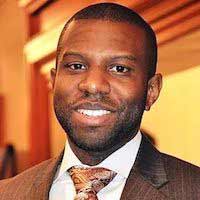
Willow Dawn Becker
Forensic psychology applies the traditional study of psychology to issues and questions relating to the legal system. The American Psychological Association states that the duty of forensic psychologists is to provide psychological assessment of individuals who are involved in some way in the legal system. As such, forensic psychologists must have thorough training in both psychology and the law, and must generally possess solid clinical skills, including interviewing, report writing, clinical assessment, and strong verbal communication abilities.
In addition, within the realm of forensic psychology exist a handful of subfields, each of which requires additional training in order to obtain proficiency. For example, forensic psychologists may pursue a specialty in handwriting analysis, which can be used to determine authorship in cases of forgery or fraud. Forensic psychologists may also specialize in profiling, which focuses on the apprehension of suspects based on a detailed analysis of common character traits found in similar criminals.
Ultimately, anyone with an interest in forensics, the law, and the combination between the two is encouraged to learn more about forensic psychology. It does require a significant amount of academic and professional experience, generally at least a PhD and countless hours of research and interviews.
But for those with these interests, there are significant number of talented, passionate, well-known, and sometimes hilarious professors active in universities around the world, including the ten described below. These professors were chosen for their contributions to research and practice at the intersection of psychology, law, and criminal justice, as well as for their prominence in high-impact publications.
Beyond researching their professional publications or following their careers through TV news or true crime books, prospective students may consider following these instructors on Twitter. This form of social media can provide a more personal glimpse of their daily lives, opinions, insights and educational methods, and in some cases, offer the ability to engage in discussions with them.
METHODOLOGY: These professors, who are active on Twitter, were chosen for their important contributions to research and practice at the intersection of psychology, law, and criminal justice, as well as for their prominence in influential media such as scholarly journals, books, and television programs.

Dr. Michael Brookes, OBE, is a professor within the School of Social Sciences at Birmingham City University in Great Britain, where he serves as the forensic psychology program director. He previously served as the director of therapeutic communities at Grendon, Europe’s only therapeutic community prison. Dr. Brookes is also a consultant chartered and registered forensic psychologist and was given the Order of the British Empire honor and designation in 2013 for services to the country’s prison service and care of prisoners. His published work has appeared in a variety of peer-reviewed journals, including the International Journal of Offender Therapy and Comparative Criminology, the Prison Service Journal, and Crime, Media, Culture.

Dr. Judy Ho is a licensed clinical psychologist, a two-time board diplomate of the American Board of Professional Psychology and the National Board of Forensic Evaluators, and a tenured associate professor of psychology at Pepperdine University. She conducts neuropsychological and forensic evaluations and delivers evidence-based therapies to youth and adults. Her CREATE lab hosts her program of research aimed at improving mental health service delivery and outcomes for ethnically diverse youth populations in low-income community settings. It also focuses on exploring creative, innovative interventions to better engage clients in the therapeutic process and to reduce stigma to professional mental health care. Dr. Ho has also shared expert commentary on a wide array of television programs, including The Doctors where she is currently a guest co-host, Crime Watch Daily, Dr. Drew On Call, CNN Tonight, and others. Dr. Ho pursues her media consultant work with the goal of providing information to the general public about psychological issues in daily life and quality mental health care, and to reduce stigma towards mentally ill individuals.

Dr. Casey Jordan is an attorney, criminologist and a professor within the Division of Justice & Law Administration at Western Connecticut State University, where she has worked since 1991. She spent a decade teaching in the Department of Sociology and Criminology at John Jay College of Criminal Justice, as well as serving as an adjunct professor at Iona College, Queens College, and St. Joseph’s College in New York throughout the 1990s. Dr. Jordan has contributed to more than 1,000 television stories on crime and legal issues, and has appeared on news and legal commentary programs including CBS’s The Early Show, Good Morning America, 48 Hours Mystery, ABC’s 20/20, CNN American Morning , Larry King Live, The O’Reilly Factor, Anderson Cooper 360, and Nancy Grace.

Dr. Margaret Bull Kovera is a presidential scholar and professor at the John Jay College of Criminal Justice, where she focuses her research on jury decision-making, scientific evidence, and eyewitness identification. As a social psychologist, Dr. Kovera’s research has been published in a number of journals, such asLaw and Human Behavior, the Journal of Applied Psychology, the Journal of Experimental Psychology: Applied, Applied Cognitive Psychology , and Psychology, Public Policy, and Law. Dr. Kovera previously served as the president of the American Psychology-Law Society, and she currently works as the editor-in-chief of Law and Human Behavior. Along with her academic pursuits, she regularly serves as a jury consultant and an expert witness to discuss the reliability of eyewitness identification. Her eyewitness research has received more than $2 million over 20 years from the National Science Foundation.

At John Jay College of Criminal Justice, Dr. Kevin L. Nadal serves as a full tenured professor within the psychology department. He also teaches in the Department of Critical Social/Personality Psychology, a position he has held for nearly a decade. In addition to his academic work, Dr. Nadal is a counseling psychologist and has published seven books, including Microaggressions and Traumatic Stress: Theory, Research, and Clinical Treatment ; That’s So Gay! Microaggressions and the Lesbian, Gay, Bisexual, and Transgender Community ; and The Sage Encyclopedia of Psychology and Gender. He has received a wide array of awards, including the Rising Star Award from the National Multicultural Conference and Summit in 2017, as well as the Early Career Award for Distinguished Contributions to Psychology in the Public Interest from the American Psychological Association.

Dr. Ivory Achebe Toldson serves as a professor at Howard University, as well as the president of the Quality Education for Minorities (QEM) Network and editor-in-chief of the Journal of Negro Education. He is also the founding director of the Center for Research, Evaluation, Assessment, and Training in Education (CREATE LLC). In addition, Dr. Toldson has more than 60 publications, including four books and more than 150 research presentations in 36 U.S. states and Puerto Rico. His lectures have taken him to the Dominican Republic, Scotland, South Africa, Paris, and Barcelona. He has been featured on an array of television and radio programs, such as MSNBC, C-SPAN2 Books, NPR News, and more. Dr. Toldson was also appointed executive director of President Obama’s White House Initiative on Historically Black Colleges and Universities.

Dr. Patricia Zapf works in the psychology department at John Jay College of Criminal Justice in New York, and is also part of the Mental Health and Psychology Institute at Simon Fraser University in Canada. She previously served as a member of the law and psychology faculties at the University of Alabama and is a current fellow of the American Psychological Association. As the past president of the American Psychology-Law Society and editor of the APLS book series, Dr. Zapf has published more than 85 peer-reviewed book chapters, journal articles, books, and manuals, which include The APA Handbook of Forensic Psychology; Forensic Assessments in Criminal and Civil Law: A Handbook for Lawyers (Oxford), which earned the 2006 Best Book Award by the American Psychology-Law Society; as well as Evaluation of Competence to Stand Trial. She’s on the board of directors for the International Association of Forensic Mental Health Services, and has conducted more than 2,500 forensic evaluations. Dr. Zapf also offers professional training to legal and mental health professionals, and works with mental health organizations to develop standardized professional training for their service providers.

Willow Dawn Becker
Willow is a blogger, parent, former educator and regular contributor to www.forensicscolleges.com. When she's not writing about forensic science, you'll find her blogging about education online, or enjoying the beauty of Oregon.